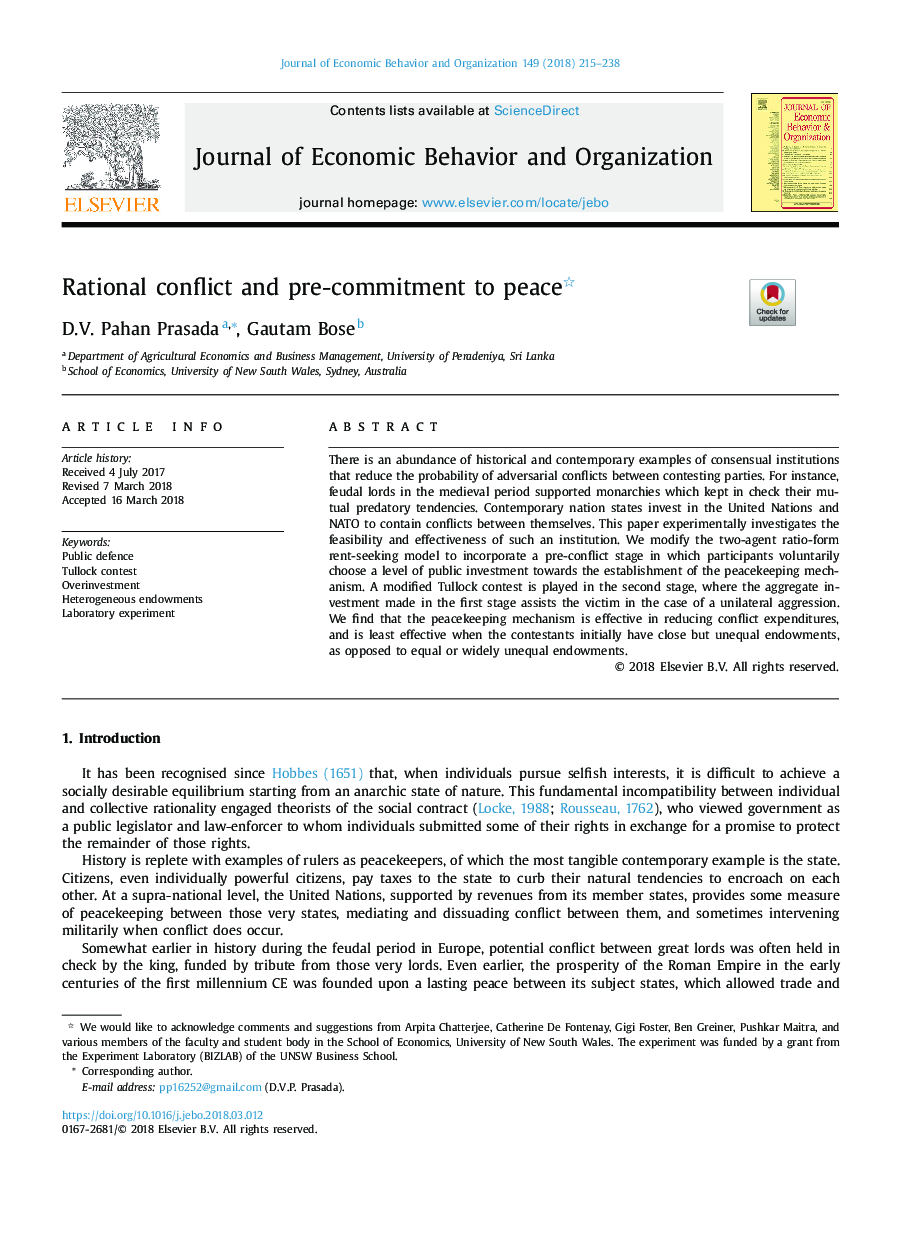| Article ID | Journal | Published Year | Pages | File Type |
|---|---|---|---|---|
| 7242580 | Journal of Economic Behavior & Organization | 2018 | 24 Pages |
Abstract
There is an abundance of historical and contemporary examples of consensual institutions that reduce the probability of adversarial conflicts between contesting parties. For instance, feudal lords in the medieval period supported monarchies which kept in check their mutual predatory tendencies. Contemporary nation states invest in the United Nations and NATO to contain conflicts between themselves. This paper experimentally investigates the feasibility and effectiveness of such an institution. We modify the two-agent ratio-form rent-seeking model to incorporate a pre-conflict stage in which participants voluntarily choose a level of public investment towards the establishment of the peacekeeping mechanism. A modified Tullock contest is played in the second stage, where the aggregate investment made in the first stage assists the victim in the case of a unilateral aggression. We find that the peacekeeping mechanism is effective in reducing conflict expenditures, and is least effective when the contestants initially have close but unequal endowments, as opposed to equal or widely unequal endowments.
Related Topics
Social Sciences and Humanities
Economics, Econometrics and Finance
Economics and Econometrics
Authors
D.V. Pahan Prasada, Gautam Bose,
